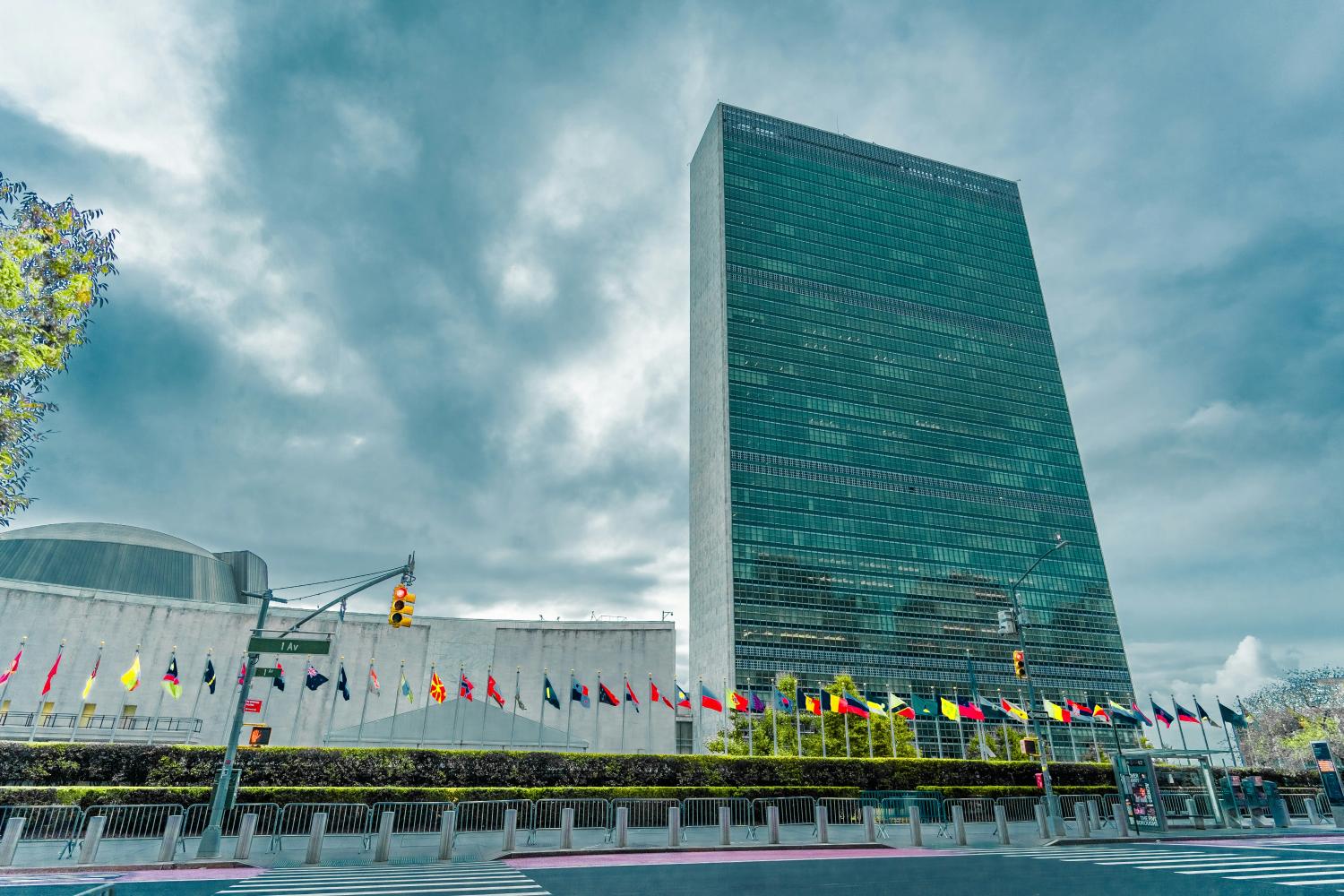
President Trump shook things up at the United Nations General Assembly this week, with a rather unconventional speech: described by news outlets as everything from a “rant” to an “attack” to an “embarrassment,” Trump pretty well blasted the UN for failing to live up to its purported task. “What is the purpose of the United Nations?” he asked, “All they seem to do is write a really strongly worded letter, and then never follow that letter up. It’s empty words – and empty words don’t solve war.”
Trump’s not the only one to be a bit disappointed. Pope Leo also gave an interview last week, and while speaking in a very different register, he noted the shortcomings of the UN in living up to its goals, too. “In theory,” he said, “the United Nations should be the place where many of these issues are dealt with. Unfortunately, it seems to be generally recognized that the United Nations, at least at this moment in time, has lost its ability to bring people together on multilateral issues.”
Why the negativity? The Pope was noting the importance of dialogue in “building bridges” across national and political divides. And, naturally, a common table around which different voices are gathered would seem to be just the place for that kind of talking and bridge-building. So why is it that the UN has been such a failed project?
It’s noteworthy that the idea for the United Nations grew out of the long history of Christendom. What developed there was the notion that there are many different countries or sovereignties, but they all have a place, even the smallest of them, because they are all part of something greater: something that gives a common moral and spiritual basis for action. Indeed, the template for the UN was the Holy Roman Empire, in which there were over 400 kingdoms and principalities, all with some independence, but all gathered under a common set of laws and a way of sorting out disputes.
Unsurprisingly, however, when it came to translating this model into modern international politics, this same instinct for a body of nations that share a certain equality of voice and right to exist, even though some are large and powerful (France, say) and some are small and much less powerful (Denmark or Switzerland), is defunct. As a result the UN has never really worked the way its founders hoped it would.
This isn’t hugely surprising. Without some significant common basis for sorting out disputes, the binding power of “dialogue” isn’t all that feasible. The word as we know it tends to be sentimentalized: dia -logos doesn’t just mean talking. It means two voices speaking according to reason. For dialogue to reach any good conclusion, there needs to be a set of agreed-upon ground rules for what reason is and what is reasonable. The world as a whole has no such common ground, and so the best an institution like the UN has been able to do is to craft Trump’s “strongly worded letters,” indeed. But much of the world doesn’t really buy them, anyway, even if they play along to take advantage of the forum for politics.
Of course, there’s some value in having a space for various ideas to be represented, possible outcomes discussed, and different concerns exchanged. But the expectations for that kind of body should probably be fairly low. The UN, when latched onto in the fullness of its high-flown rhetoric, tends to foment utopian dreams, and as such it’s pretty well destined for failure. Then, as usual, when the utopian dream dissipates, members use the gutted structure for pursuing their own politicking. Few take the UN seriously anymore as an important player for genuinely adjudicating geopolitics. But it remains a place where key players attempt to get their views out there, even if they’re going to do what they were planning to, anyway, no matter other leaders’ response.
So what’s to be done? Perhaps the first thing is simply to lower the bar for success. Pope Leo encourages bridge-building and peace, and that’s surely an end worth upholding. But perfect “world peace” as a serious possibility for fallen humanity? That’s almost certainly a pipedream. Mitigating the worst of world conflicts, though, and avoiding total conflagration between nations? That’s a good ideal, and not at all a forlorn hope. More peace rather than less peace is a sensible pursuit, and not one for just those who have given up the ghost of more ambitious goals. Rather, it’s a pursuit that can keep us close to our fallen human nature, and our noblest ideals, both: a realistic expectation, as well as a good and worthy one.
Did you hear what Pope Leo XIV had to say about the rapture this week? Did you see the photos of him falling down the stairs of St. Peter’s Basilica? It turns out that neither of these actually happened. AI “deepfakes” have begun to appear across the internet, producing convincing images and videos of Pope Leo XIV that have led many into confusion.
The lower house of Italy’s parliament voted to pass a bill to make St. Francis of Assisi’s feast day (October 4) a national holiday, with a tally of 247 to 2. The bill now moves on to the Italian Senate for deliberation.
How St. John Paul II saved one author’s Sundays - and maybe yours, too.


